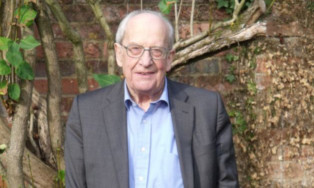Professor Sir Alan Peacock, a leading free-market economist who studied at Dundee High School and St Andrews University, has died aged 92.
Professor Sir Alan was an expert in cultural economics of the arts, heritage and broadcasting which led to his becoming embroiled in some of the most controversial arts funding rows of the last 50 years.
He was born on June 26 1922 at Ryton-on-Tyne, a village outside Newcastle, where his father Alexander Peacock was a university lecturer in zoology.
The family later moved to Dundee where Sir Alan attended Grove Academy, Broughty Ferry, and then Dundee High School.
In later life he prepared a memoir for his old school which was rejected for publication as “pornographic”, presumably due to its dispassionate accounts of youthful exuberance, including such impressive feats as urinating over the school wall into the girls’ playground on the other side.
Sir Alan’s studies at St Andrews University were interrupted by war service in the Royal Navy. After being called up in 1942, he served as an ordinary seaman on east coast convoys and later as an officer of the naval Y-service (which listened to and took direction-finding of enemy wireless transmissions), to which he was recruited because of his knowledge of German.
During an attempt to destroy the German blockade-runner Munsterland, his ship, the destroyer Limbourne, was torpedoed off the Channel Islands on October 23 1943, and he was one of the few survivors.
After survivors’ leave, he was employed on Arctic convoys using highly-secret detection equipment to warn of attacks by U-boats and aircraft. In 1945 he was awarded the DSC for his work in the Arctic Ocean.
After graduating from St Andrews in 1947, Sir Alan was appointed to a lectureship in economics. He soon moved to the London School of Economics, where he also conducted the LSE Orchestra. In 1956 he became Professor of Economics at Edinburgh University.
Six years later he moved to a similar position at York University, where he founded the Department of Economics and remained until 1978 and was knighted in 1987.
His wife Margaret Burt died in 2011. He is survived by their daughter and two sons.
